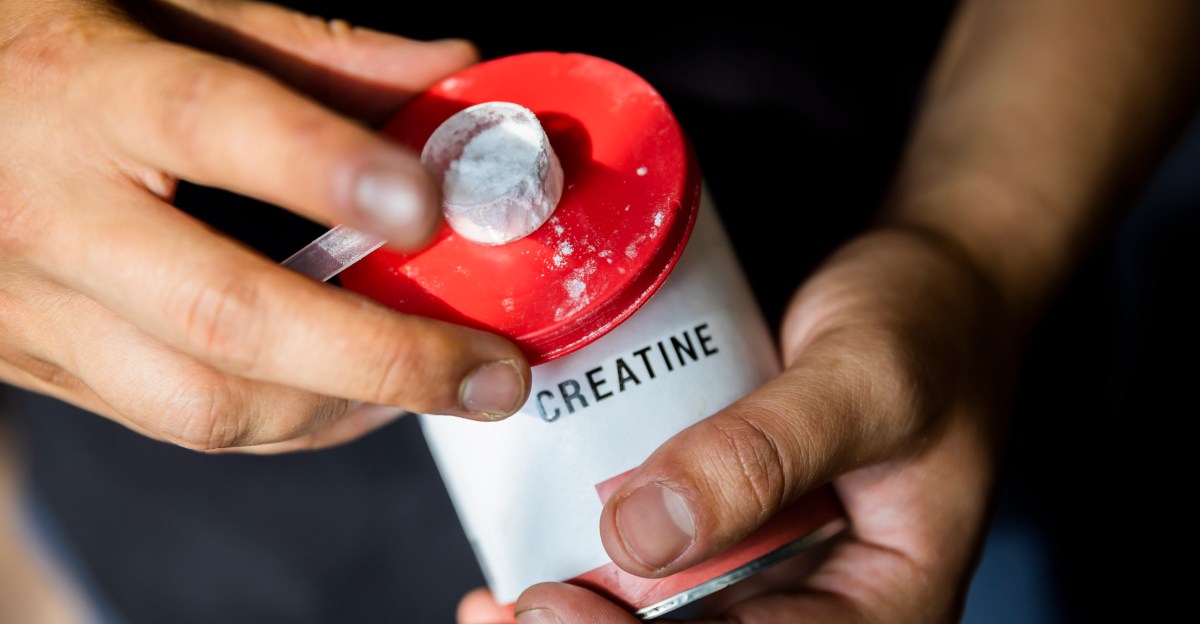Unveiling the Potential: Can a $10 Weightlifting Supplement Alleviate Depression?
Researchers are investigating whether a widely available $10 weightlifting supplement could offer relief for depression. Recent studies suggest that creatine monohydrate, commonly used by athletes to enhance performance, may also improve mood disorders. As mental health experts and fitness scientists collaborate, this affordable compound could revolutionize treatment approaches. Here’s what the science reveals so far.
The Science Behind Creatine and Mental Health
Creatine, a naturally occurring compound found in muscle cells, has long been recognized for its ability to boost energy during high-intensity workouts. However, emerging research indicates its benefits may extend to brain function. A 2023 meta-analysis published in Translational Psychiatry reviewed 14 studies involving over 1,200 participants, finding that creatine supplementation showed significant antidepressant effects compared to placebos.
Dr. Emily Sanders, a neuroscientist at Stanford University, explains: “Creatine plays a crucial role in cellular energy metabolism. In depressed individuals, we often see impaired energy production in brain cells. By replenishing these energy stores, we might be addressing a root cause of depressive symptoms.”
Key findings from recent studies include:
- 40% reduction in depressive symptoms in treatment-resistant patients (University of Sydney, 2022)
- Improved response rates when combined with SSRIs (Journal of Clinical Psychiatry, 2021)
- Faster onset of action compared to traditional antidepressants (4 weeks vs 6-8 weeks)
How Creatine Works on the Brain
Unlike conventional antidepressants that target serotonin or dopamine systems, creatine appears to work through multiple pathways:
1. Energy Production: Boosts ATP synthesis, enhancing neuronal energy reserves
2. Neuroprotection: Reduces oxidative stress and inflammation in brain tissue
3. Neuroplasticity: Stimulates growth factors that promote new neural connections
Dr. Mark Richardson, a psychiatrist at Massachusetts General Hospital, cautions: “While the preliminary data is exciting, we need larger, longer-term studies. We’re not yet at the point where we can recommend creatine as a standalone treatment for clinical depression.”
The Fitness-Mental Health Connection
The potential antidepressant effects of creatine highlight the growing recognition of links between physical and mental health. Exercise itself is a proven mood booster, and creatine may amplify these benefits through several mechanisms:
- Enhancing workout performance, leading to greater endorphin release
- Reducing mental fatigue during exercise
- Improving recovery between training sessions
A 2021 survey of 500 gym-goers found that 68% reported improved mood when using creatine regularly, compared to 52% of non-users. While not conclusive evidence, these real-world observations align with clinical findings.
Safety and Dosage Considerations
Creatine has an excellent safety profile when used as directed. The International Society of Sports Nutrition confirms its safety in healthy individuals at typical doses (3-5 grams daily). However, certain populations should exercise caution:
- Individuals with kidney disorders
- Those taking lithium or other mood stabilizers
- Pregnant or breastfeeding women
Potential side effects are generally mild and may include:
- Water retention (temporary weight gain)
- Digestive discomfort (when taken without adequate water)
- Muscle cramping (rare, usually related to dehydration)
Expert Perspectives on Supplement-Based Treatments
The mental health community remains divided on the role of supplements in depression treatment. While some clinicians welcome additional options, others urge caution against overpromising results.
Dr. Sarah Chen, a clinical psychologist, notes: “In an era where many patients struggle with medication side effects and costs, accessible alternatives are desperately needed. However, we must balance hope with scientific rigor.”
Nutritional psychiatrist Dr. David Klein offers a middle ground: “Creatine shouldn’t replace evidence-based treatments, but it could become part of a comprehensive approach—especially for patients who don’t respond to first-line therapies.”
Comparing Costs: Supplement vs Traditional Treatments
The affordability of creatine presents a significant advantage:
| Treatment | Monthly Cost | Insurance Coverage |
|---|---|---|
| Creatine Supplement | $10-$15 | Typically not covered |
| SSRI Antidepressants | $20-$300 | Usually covered |
| Therapy Sessions | $100-$300/session | Often partially covered |
For uninsured individuals or those in developing countries, creatine could represent a potentially life-changing option if its efficacy holds up in further trials.
Future Research Directions and Limitations
While current findings are promising, several unanswered questions remain:
- Optimal dosing protocols for mental health benefits
- Long-term effects beyond 6 months of use
- Differences in response among demographic groups
- Potential interactions with psychiatric medications
Major institutions including the National Institute of Mental Health have funded additional studies expected to conclude in 2025. These trials will examine creatine’s effects on specific depression subtypes and biomarker changes.
Practical Advice for Interested Individuals
For those considering creatine supplementation for mood support:
- Consult with a healthcare provider, especially if currently treated for depression
- Start with a maintenance dose (3-5g daily) rather than loading phases
- Choose pure creatine monohydrate without unnecessary additives
- Monitor mood changes using a journal or tracking app
- Maintain other treatment modalities unless advised otherwise by a doctor
The supplement’s accessibility makes it tempting to self-experiment, but professional guidance remains crucial. As research evolves, creatine may transition from gym bags to medicine cabinets—but only time and rigorous science will tell.
Call to Action: If you or someone you know struggles with depression, consult a mental health professional before making treatment changes. To stay updated on this developing research, subscribe to reputable medical news sources or discuss emerging options with your care provider.
See more WebMD Network



